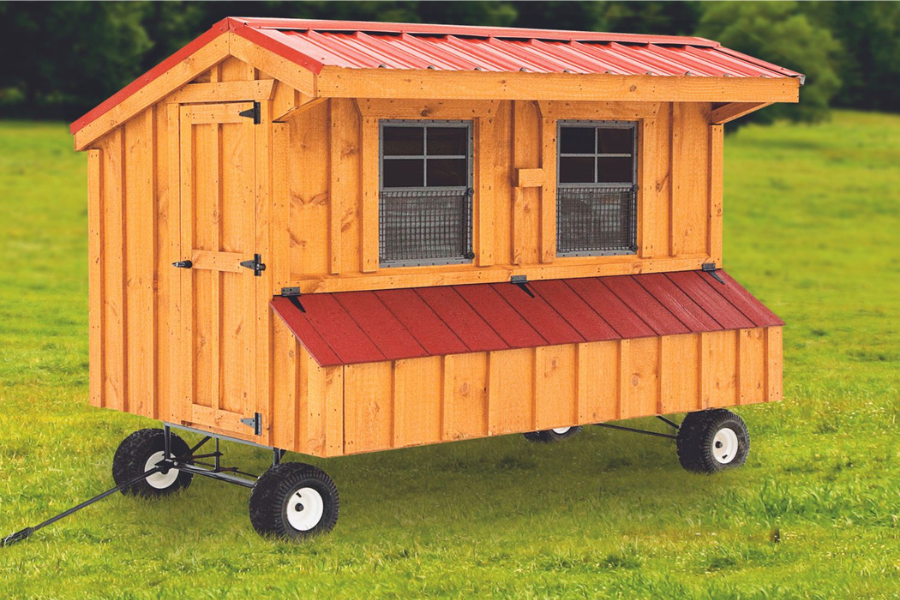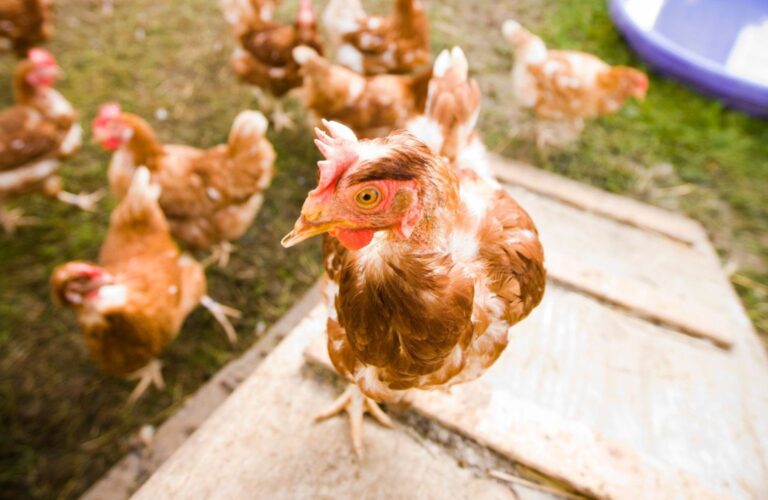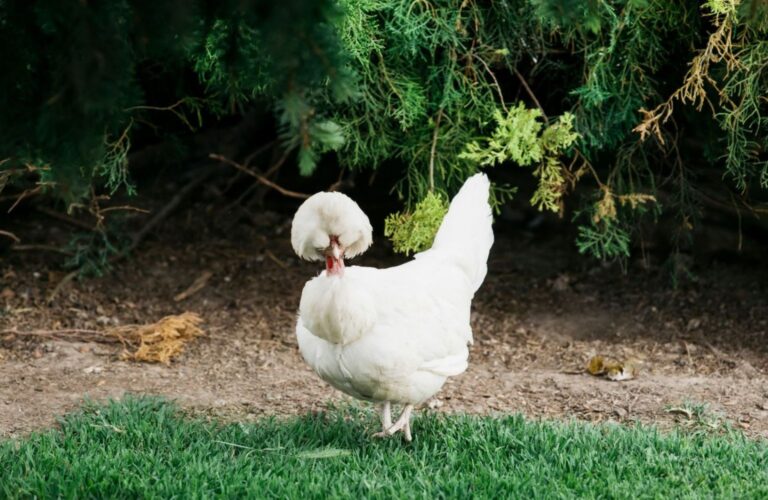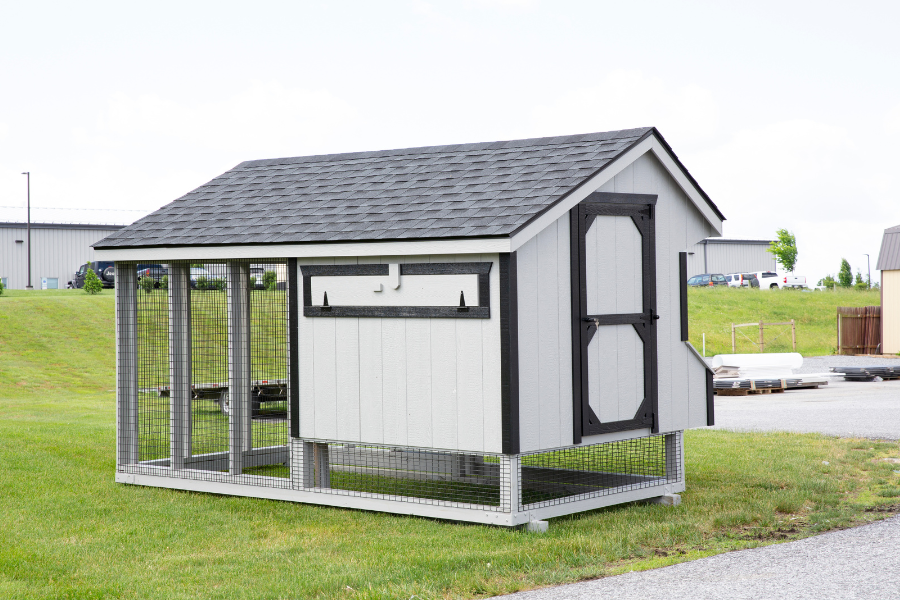
While some states have fully embraced backyard chickens as a way to increase agriculture and help their constituents reduce food costs, some still lack clear regulations, and some still strictly prohibit them. Ohio reflects this national inconsistency. While some communities have fully embraced backyard chickens, others still lack clear legislation or maintain restrictions.
Because all these different stances and legal requirements regarding backyard chickens can be difficult to navigate, we’ve created this guide to help you determine if you can have chickens in your backyard in Ohio. This guide includes all 88 counties, along with the appropriate government contact information and several city-specific chicken-keeping requirements.
Ready to learn your area’s requirements? Let’s dive in.
Is It Legal to Have Chickens in Your Backyard in Ohio?
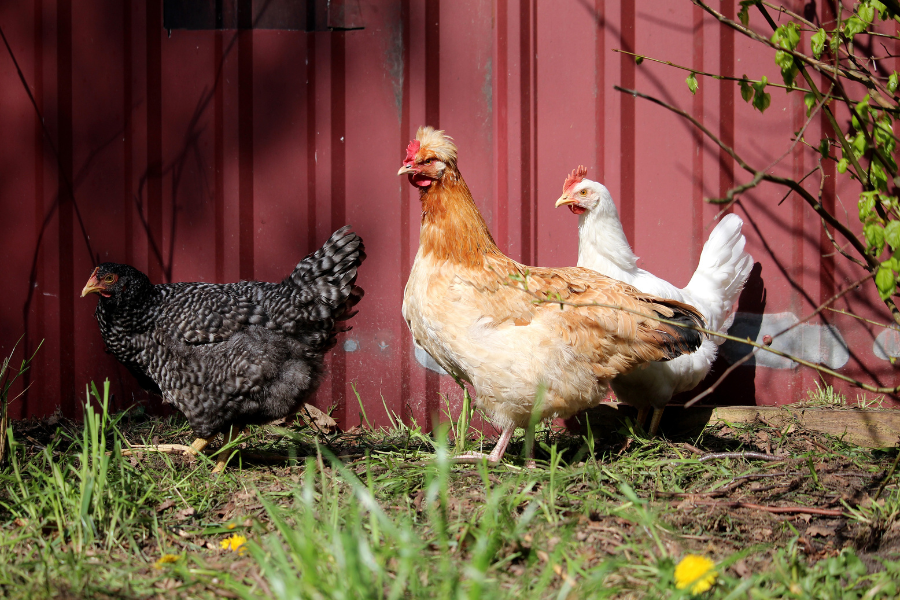
Yes, in many parts of Ohio, it is legal to keep backyard chickens, but it depends on your local zoning ordinances. There’s no statewide law in Ohio that prohibits or allows chickens, so decisions are made at the local level by cities, townships, and sometimes homeowners’ associations.
Some Ohio cities embrace urban agriculture and allow a small number of hens in residential areas. Others may ban chickens entirely, limit the number you can own, or impose specific rules regarding coop placement and maintenance.
Do You Need a Permit for Chickens in Ohio?
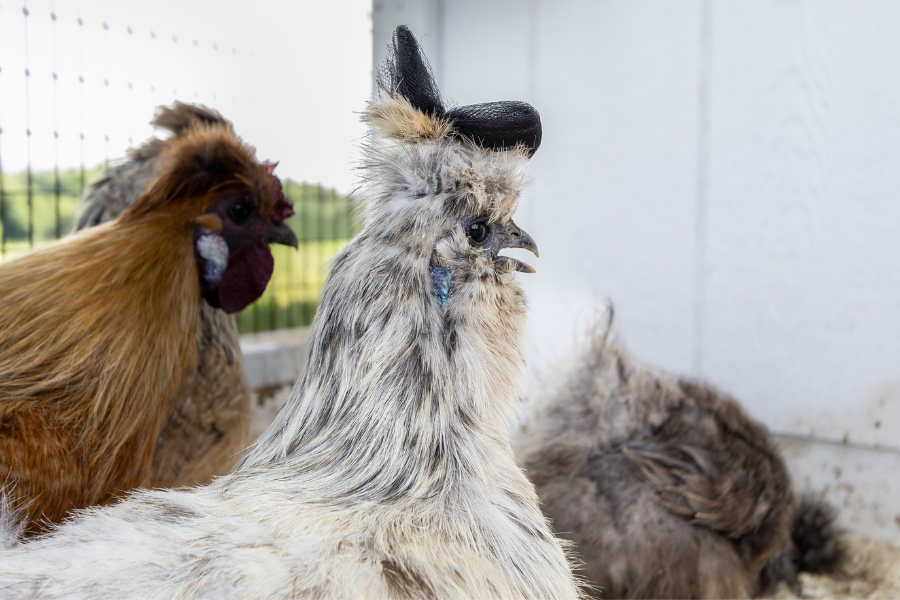
In many Ohio municipalities, a permit is required to keep chickens, especially in urban or suburban areas. These permits usually ensure your property meets zoning requirements and that your coop design follows setback, sanitation, and noise regulations.
You’ll typically apply through your local zoning or planning department. Some cities may also require neighbor consent, an annual inspection, or a small fee.
How Many Chickens Can I Have in Ohio?
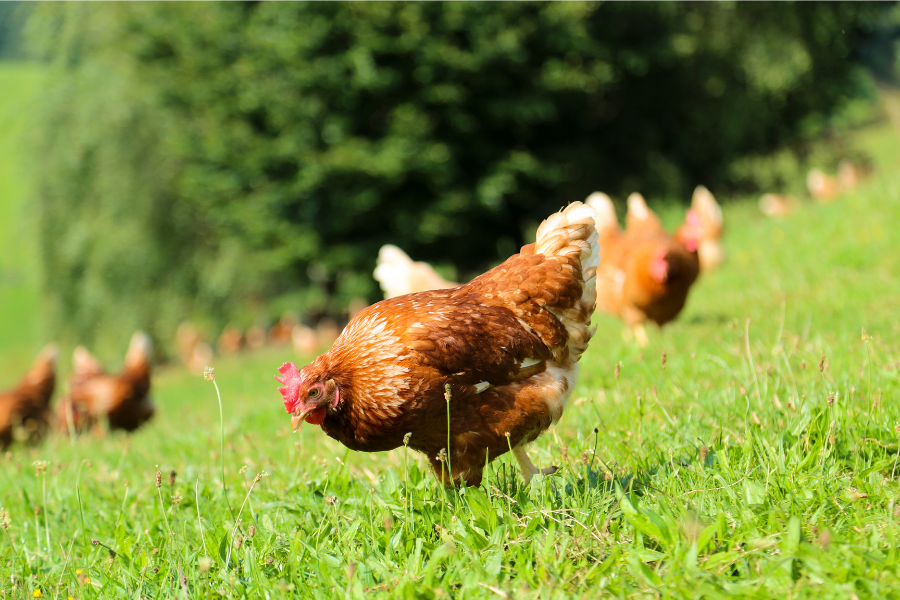
The number of chickens you can legally keep varies by location. In urban settings like Cincinnati or Akron, the limit might be between 4 and 6 hens. In rural counties like Holmes or Wayne, you might be able to raise a full flock without restriction.
Keep in mind that roosters are often prohibited in residential areas due to noise concerns.
Can I Have a Chicken Coop in My Backyard in Ohio?
Yes! A coop or enclosed run is required in almost all areas that allow backyard chickens. Local rules may specify:
- Minimum distance from property lines or neighboring homes
- Size limits on your chicken coop
- Construction materials and cleanliness standards
Your coop should be secure enough to protect your flock from predators and provide adequate shelter from Ohio’s changing seasons.
Can an HOA Prevent You From Having Chickens in Ohio?
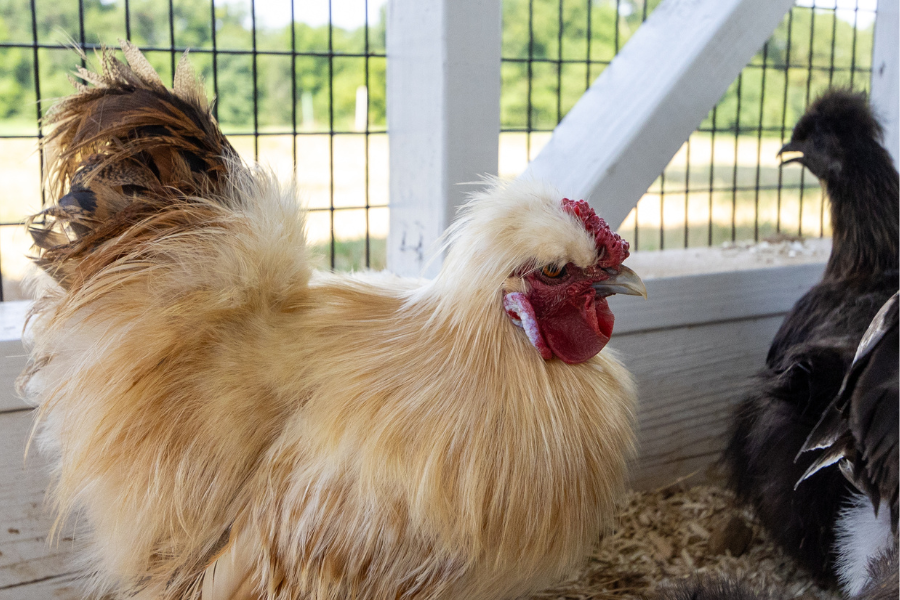
Yes. Even if your city or township allows backyard chickens, your homeowner’s association (HOA) can still ban them. HOAs have the right to create and enforce their own rules, and those often include restrictions on livestock and outdoor structures like chicken coops.
If you live in an HOA-governed community, be sure to read your bylaws or speak with your HOA board before setting up a flock.
Can I Sell My Backyard Chicken Eggs in Ohio?

Ohioans can sell eggs from their backyard chickens under certain conditions. If you’re selling directly to consumers (like at a farmers’ market or from your home), the Ohio Department of Agriculture does not require an egg license as long as you sell fewer than 5,000 dozen eggs annually and follow proper labeling and sanitation procedures.
However, if you plan to sell to retail stores or restaurants, you’ll need to follow additional regulations, including egg grading and licensing requirements.
To ensure you’re following all applicable rules, contact the Ohio Department of Agriculture for more information.
Which Municipalities in Ohio Allow Backyard Chickens?
In Ohio, chicken regulations are typically set at the township, city, or village level. To help you navigate these local rules, we’ve compiled a list of several cities in Ohio, whether backyard chickens are allowed, and what requirements apply.
If your community isn’t listed, contact your township, village, or city officials directly to confirm the laws that apply in your area.
Does Akron, Ohio, Allow Backyard Chickens?
It appears they are permitted so long as they are not kept within 100 feet of any dwelling. However, the city’s municipal code does not provide other details, meaning the zoning districts in which they are permitted, the number of chickens allowed, and other requirements are unclear. Contact the Planning & Urban Development Department for clarity on what is allowed.
Does Ashland, Ohio, Allow Backyard Chickens?
Yes, but the city does have specific requirements for keeping them, including:
- Number of Chickens: No more than five on a property with 5,000 square feet or less
- Chicken Coop: Required
Setbacks and other requirements regarding chicken coops are unclear. Contact the Building & Zoning Department for clarification on these requirements.
Does Athens, Ohio, Allow Backyard Chickens?
The city does appear to allow backyard chickens in the R-1 single-family residential district, provided they are kept in an enclosure at least 100 feet from every lot line. This means the number of chickens, whether or not you can have them, and any additional requirements likely depend on your property size. Contact Code Enforcement to determine if you can have backyard chickens.
Does Batavia, Ohio, Allow Backyard Chickens?
Backyard chickens are only permitted in Batavia if you have a property larger than 1 acre, and the coop can be located more than 100 feet from any inhabited dwelling other than the owner’s. These restrictions can make it difficult for most residents to keep chickens in their backyard. Contact your Village Planning & Zoning Commission Officials if you want to see these requirements change.
Does Bellefontaine, Ohio, Allow Backyard Chickens?
You can only keep chickens as an accessory in Bellefontaine, Ohio, if the coop or enclosure in which they are located is at least 200 feet from any lot line. The exact number of chickens and other requirements are unclear. This setback requirement is often very restrictive for those interested in keeping backyard chickens. To advocate for change, contact the Planning Commission.
Does Bryan, Ohio, Allow Backyard Chickens?
No, you cannot keep backyard chickens within Bryan’s city limits.
Does Bucyrus, Ohio, Allow Backyard Chickens?
Yes, you can have chickens in your backyard, so long as they do not become a nuisance. The city recommends that you do not keep a rooster per this principle. Additional requirements likely apply, but are not clearly stated. Contact the Zoning Department to learn more about keeping backyard chickens within the city.
Does Cadiz, Ohio, Allow Backyard Chickens?
You can keep chickens in your backyard in Cadiz, Ohio, but only for personal use. To have them in the R-1 single-family residential district, you must meet the following requirements:
- Minimum Acreage: ½ acre
- Number of Chickens Per Acre: 10
- Chicken Coop Setbacks
- Front: 50 feet
- Side: 25 feet
- Rear: 20 feet
Chickens are not permitted in any other residentially zoned district. To ensure compliance with all applicable regulations, contact the Zoning Department.
Does Canton, Ohio, Allow Backyard Chickens?
Yes, provided that the following requirements are met:
- Number of Chickens:
- No more than six hens
- No roosters
- Distance From Other Properties:
- 50 feet from any residence
- 20 feet from property lines
- Permits: Must be obtained from the City Clerk’s Office
Specific requirements may be in place based on your property’s zoning, so be sure to certify compliance with the Planning & Zoning Department.
Does Chillicothe, Ohio, Allow Backyard Chickens?
You can keep chickens in Chillicothe if:
- Number of Chickens: Not specified
- Chicken Coop Setbacks:
| Property Size | Minimum Setback Requirement | Additional Location Rules |
| Less than 5 acres | 20 feet from all property lines | Not allowed in front or side yard; must comply with zoning and building codes |
| 5 to 10 acres | 20 feet from all property lines | Not allowed in front or side yard; pasture areas must be fenced per code |
| More than 10 acres | 200 feet from any inhabited structure; 150 feet from any property line | Not allowed in front or side yard; pasture areas must be fenced; must comply with zoning and building codes |
- No Roosters Permitted
For clarification on how many chickens are allowed or to stay compliant, contact the Planning & Development Department.
Does Cincinnati, Ohio, Allow Backyard Chickens?
Backyard chickens are permitted, but there is a specific set of standards you must follow to keep them in Cincinnati:
- Number Of Chickens Per Lot:
- 1 rooster is allowed for every 15 hens
- Must be kept in a coop or other enclosure that:
- 50 feet from all property lines
- Provides at least 4 square feet per chicken
- Has a setback of 10 feet from all property lines
To check that you can have chickens on your property, contact City Planning.
Does Circleville, Ohio, Allow Backyard Chickens?
Backyard chickens are only permitted if kept more than 100 feet from any inhabited dwelling. Specific requirements are unclear. For clarification on what is allowed, contact the Building & Zoning Department.
Does Cleveland, Ohio, Allow Backyard Chickens?
You can keep chickens in residential zoning districts in Cleveland, Ohio, but you must meet the following requirements:
- Number of Chickens:
- 1 per 800 square feet of lot area
- No more than six on a lot of 4,800 square feet
- Setbacks:
- 5 feet from the side yard line
- 18 inches from the rear yard line, unless it is joined with the side or front lot line of the neighboring property, in which case it must also be 5 feet
- No roosters unless the property has at least 1 acre and the coop is 100 feet from all property lines
- Coop Requirements:
- Should not be larger than 32 square feet
- Must have an outdoor enclosure that provides at least 10 square feet of area for each bird
To certify compliance with all applicable regulations, contact the Planning Commission.
Does Columbus, Ohio, Allow Backyard Chickens?
The city appears to permit them when the proper permit is obtained, but specific details for permit approval are unclear. For clarification on what is allowed, contact Building & Zoning Services.
Does Dayton, Ohio, Allow Backyard Chickens?
It is unclear as no specific regulations are in place, contact the Planning & Development Department or refer to Montgomery County’s requirements to find out more.
Does Elyria, Ohio, Allow Backyard Chickens?
It is unclear if they are permitted within the city. Contact the City Planning Department to find out what they allow.
Does Hamilton, Ohio, Allow Backyard Chickens?
It appears that backyard chicken keeping is only permitted on agriculturally zoned properties. Contact the Hamilton Planning Department for clarification on what is allowed. You can contact the city council to advocate for change regarding their current backyard chicken laws.
Does Kettering, Ohio, Allow Backyard Chickens?
No, the city of Kettering strictly prohibits backyard chickens.
Does Lima, Ohio, Allow Backyard Chickens?
You can only keep backyard chickens in Lima, Ohio, if your property has at least 2 acres. The city shares joint planning authority with Allen County, so the same regulations apply if you reside in an unincorporated area within the county.
Does Lorain, Ohio, Allow Backyard Chickens?
Backyard chickens do not appear to be permitted at this time, but the City Council is reviewing a proposed ordinance that could change this. For updates, contact your city officials.
Does Middletown, Ohio, Allow Backyard Chickens?
Not exactly. The city does not allow chickens unless kept in a proper enclosure 300 feet from any inhabited dwelling. Given the size of most residential lots, this requirement effectively prohibits backyard chickens. To learn more, contact the Planning & Zoning Department.
Does Newark, Ohio, Allow Backyard Chickens?
It is unclear what the city allows. Contact the Community Development Department to learn more about their backyard chicken laws.
Does Parma, Ohio, Allow Backyard Chickens?
No, the city of Parma prohibits backyard chickens from being kept. There is a petition rolling around to get the law changed. To show your support for this movement, contact the City Council.
Does Springfield, Ohio, Allow Backyard Chickens?
Yes, backyard chickens are allowed in Springfield, but they are subject to the following requirements:
- On lots of less than 1 acre:
- Coop: Required
- Number of Chickens: Unclear, may vary by district
- Setbacks:
- 30 feet from any dwelling unit
- Side Property Lines: 5 feet
- Rear Property Line: 10 feet
Since requirements vary by your property’s zoning designation, consult with the Planning & Zoning Division to ensure compliance with all applicable requirements.
Does Toledo, Ohio, Allow Backyard Chickens?
Yes, you can have chickens in your backyard in Toledo, but you must adhere to the following requirements:
- Number of Chickens: 6
- Chicken Coop: Required
- Setbacks:
- 25 feet from any door or window of any dwelling or occupied building other than the owner’s
- 5 feet from the side property lines
- 18 inches from the rear property line
- It can’t be located in the front yard
- Permit: Not required if the above conditions are met
Contact Code Compliance to certify compliance with the outlined requirements and ensure a permit is not required.
Does Youngstown, Ohio, Allow Backyard Chickens?
It appears that backyard chickens are allowed, but they must be kept in a proper enclosure and not allowed to roam freely. Additional requirements are unclear, so contact the Zoning Department to determine what the city permits.
Chicken Laws By County in Ohio
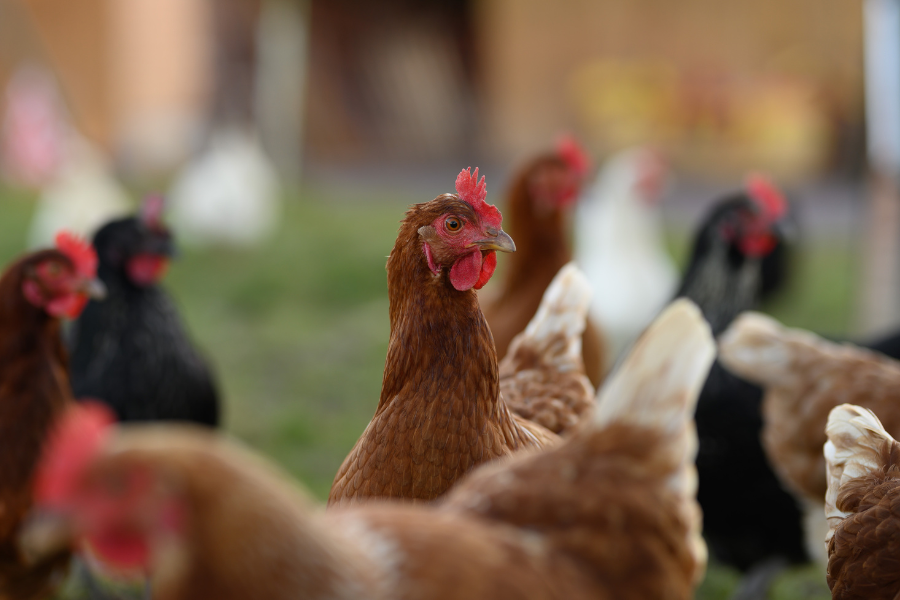
Unlike other states we’ve covered, Ohio delegates enforcement of backyard chicken regulations in unincorporated areas to townships rather than counties. As a result, county governments typically do not regulate chickens directly. Instead, responsibility falls to each county’s townships, cities, or villages.
Below, you’ll find links to the appropriate county contact or to township-level resources, which can help you identify the most accurate and up-to-date information for unincorporated areas.
If you live within city or village limits, refer to the section above to learn about the local rules that apply to your area.
How Far Away From Your House Should a Chicken Coop Be?
In general, most areas require chicken coops to be at least 25 to 30 feet from your home. However, this distance can vary across Ohio. To find out what applies in your area, contact your local planning or zoning department.
Can Neighbors Complain About Chickens?
Yes, many localities allow neighbors to file complaints if chickens create a nuisance. To understand how your area defines a nuisance and how to stay in compliance, contact your local Animal Control Department.
How Many Chickens Can You have in a 4×8 Chicken Run?
This varies depending on the type of chickens you plan to keep. Smaller breeds typically require about 2 square feet of space per bird, while larger breeds need around 4 square feet. A 4×8 chicken coop provides 32 square feet, accommodating up to 16 small chickens or eight large ones.
To find the right coop size based on how many chickens you plan to keep, check out our chicken coop sizing guide or browse coops by flock size.
Searching for an Ohio-Compliant Enclosure For Your Chickens?
As you’ve learned in this article, the coop you choose plays a key role in meeting Ohio’s backyard chicken laws. Many areas have specific requirements for coop size, placement, and attached runs. They may also enforce standards for cleanliness and other design details. These regulations can make it challenging to find a coop that suits both your flock and your local ordinances.
At The Hen House Collection, our mission is to provide backyard chicken keepers of all experience levels with coops that meet their needs. That’s why our models come in various sizes and include features like easy-clean designs, nesting boxes, egg collection boxes, and more. These features make it simple to care for your flock while staying compliant with Ohio’s regulations.
Create a custom coop tailored to your needs or browse our in-stock inventory to find one nearby. Have questions? Contact us to learn how we can help you build a coop that meets local standards.


